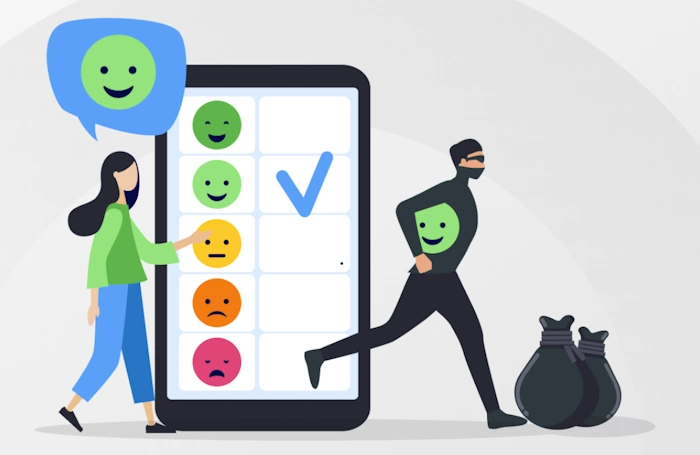Are Mental Health Apps Spying on You? A Deep Dive into Data Collection
Is your data safe with mental health apps? How do they use your data? Do they share your data with third parties?
We guarantee that you have never asked these questions before. And you are right! We trust such apps and believe they will keep our data safe, but this is not true in most cases!
Mental health apps have become a prevalent resource for individuals seeking support. These apps offer an easy way to access tools that can help improve mental health.
However, as users, you may wonder if your personal information is safe. In this blog post, we’ll delve into the world of mental health apps to explore data collection practices and privacy concerns.
The Increasing Popularity of Mental Health Apps
Mental health apps have gained popularity in the last few years. They offer you a range of benefits, including access to tools for stress management, mood tracking, and meditation. These apps also provide guidelines about therapy.
These apps can empower you to actively participate in your mental well-being. But they do not guarantee to protect your data.
Central to the success of mental health apps is the trust that users like you place in them. You rely on these apps to safeguard your personal information.
We all need to recognize the significance of this trust. It is a huge responsibility indeed. Personal data of people who are already suffering from mental health issues is something that needs to be protected at any cost.
Data Collection in Mental Health Apps

Mental health apps collect your data to provide personalized experiences and improve their services. These categories of data include personal information, health and behavioral data, and even location data in some cases. According to research, 80% of tested apps collect your personal data, which includes data on your mental health symptoms.
When you sign up for a mental health app, you often provide personal details such as your name, email address, age, and gender. This information helps customize the app’s content to your specific needs.
Mental health apps rely on your input data about your mood, sleep patterns, stress levels, and other behavioral factors. These apps can offer tailored recommendations based on this collected data. This data also provides insights to help you manage your mental health.
Some mental health apps may request access to your location. For instance, they track your physical activity or provide localized mental health resources. This data can be valuable for understanding how your environment affects your well-being.
How Data Is Collected: What We All Need to Be Aware Of
Data collection in mental health apps occurs through various methods. You need to be aware of these processes.
- User Input: Much of the data collected is directly input by you. You voluntarily share information about your emotions, thoughts, and behaviors. It allows the app to create a holistic picture of your mental health.
- Passive Data Collection: Besides user-provided data, mental health apps may collect data passively, such as device information, usage patterns, and sensor data. This passive data collection often occurs in the background. Understanding what data is being gathered and how it is used is crucial.
- Third-Party Sources: Some apps integrate with third-party services like wearable fitness trackers or social media platforms. It can introduce additional data sources into the app’s ecosystem, and it’s essential to consider the implications of sharing data across different platforms.
We all need to be aware of these data collection methods to ensure that our privacy is respected and our mental health information is handled with care. In the next section, we’ll explore the role of consent and transparency in this process.
Privacy Concerns Surrounding Data Collection
Regarding mental health apps, data breaches and security vulnerabilities are risks that you and everyone should be concerned about. These issues can have consequences for your personal information and overall security.
Data breaches involve unauthorized access to an app’s database, potentially exposing your sensitive information. You need to understand the measures in place to protect your data, and for app developers, we must prioritize robust security protocols to prevent breaches.
Mobile apps may contain security vulnerabilities that malicious actors could exploit. As users, you should be cautious about sharing sensitive data with apps that don’t have strong security measures. We developers are responsible for regularly updating and securing the app to protect your data.
The issue of unauthorized data sharing affects both you and all users of mental health apps. It’s crucial for your privacy that data-sharing practices are transparent and consent-based.
We can work together to ensure that mental health apps provide valuable support. It is possible by collectively addressing these concerns and prioritizing responsible data practices. This way, these apps can safeguard your privacy and well-being.
Conclusion
In this journey through mental health apps and data privacy, we’ve learned that your well-being matters, and so does our collective responsibility.
As a user, you should be mindful of how your data is handled. You have every right to demand transparency and make informed choices.
Developers must prioritize your privacy and security. They must ensure these apps are safe spaces for your mental health journey. Together, we can embrace the benefits of digital mental health while safeguarding your personal information.








